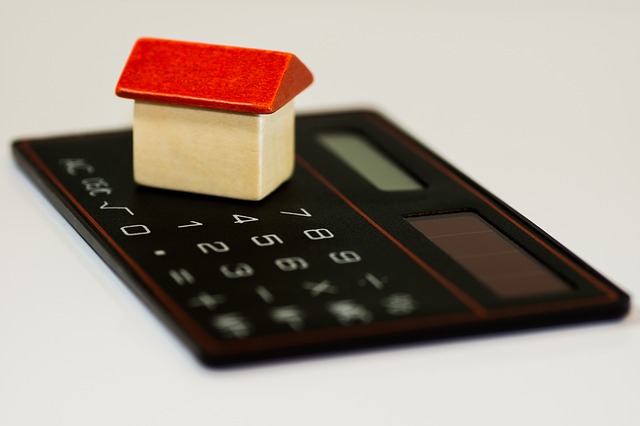While the Federal Reserve continues its efforts to stimulate the economy, interest rates are all-time lows. Therefore, now can be a good time for you to purchase a home or refinance your existing mortgage. If you refinance, you can be able to low your monthly payments and see savings in interest for the life of the loan. June generally marks the height of the spring real estate market. It is National Homeownership Month, after all. But this June has not been usual. With job loss numbers in lots of millions, the economic effect of the COVID-19 has put homeownership at risk, with several struggling to make mortgage and rent payments. There’s one unexpected bright spot, though: Interest rates contain dipped to historic lows. And, if you can take the benefit of opportunities to buy or refinance a mortgage at an irresistible rate, you can wonder whether you should.
To Buy or Not to Buy?
It depends. There are pros and cons to purchasing now, and it hinges on your certain situation. Here are some things to consider:
Time, and numbers, are on your side. If you are a first-time investor looking to seize the day, you likely do not want to rush. Though there are job losses and customer confidence seems to reduce, rates can remain low for some time. And, although house values are showing more resiliency than they’d in 2008, prices can reduce a bit more, getting you a small more for your money.
Supply, and available credit, aren’t. Even if you are willing to brave a fluctuating market, overall inventory is relatively low and there is small to select from. Not surprisingly, several sellers are reluctant to list properties during the pandemic and are holding out for favorable economic situations. If you cannot find what you need, do not work with a developer. Several want cash flow right now, so it may be your chance to make a deal.
Remember that the mortgage market is also affected due to the pandemic, with liquidity dipping along with rates. May saw a tightening of lending standards, as per a recent Mortgage Credit Availability Index report issued by the Mortgage Bankers Association. Cautious lenders are changing underwriting guidelines, so you can expect additional stringent credit score and down payment needs and your credit will factor into whether you get the great available rate. First-time buyers can require to look at many financing options like conventional loans with private mortgage insurance or FHA loans if they have got a low credit score or need to put less down.
Is Refinancing the Right Move?
Historically lowest interest rates are causing a flurry of activity to existing homeowners, too, and with better reason. Refinancing provides possibilities such as reducing monthly payment, switching from an adjustable to a fixed rate, shortening the life of a loan, or even cashing out a portion of your equity to use toward paying for college, house improvements, as well as other outstanding debt. Though it can look like a no-brainer, it isn’t the right move and you can find yourself with less money in the bank rather than more.
Think long term
The rule of thumb was to refinance if you can low your new mortgage rate by a minimum of 2%. Not anymore. If you can low the rate by 1% or more, you can see important savings. How much savings depend on how far you will pay the current loan. For instance, if you are three years in and need to shorten your loan from 30-15 years, you may save on interest, even if you end up with a similar or slighter high monthly payment, but over much less time. If you are 10 years into a 30-year loan, however, and need to low your monthly payment by refinancing for another 30-year term at a low rate, you can pay more in interest over 40 years.
Shop around and do the math
Though refinancing may save money over the life of your mortgage loan, it can come at a cost. Additionally, to the interest rate, pay attention to things like closing costs, up-front fees (for example, title search fees, appraisal, legal, loan origination), points, and whether the lender will serve the whole life of the loan. You can find few lenders offer no points, no closing prices options at high-interest rates. Ultimately, consider the prices of the loan against how long you plan to stay in the house. Ideally, you need to break even on your refinancing prices within 1 year. Make sure to shop lenders and run the numbers with your certified financial planner’s professional making meaningful comparisons may help you snag the great possible deal and make sure that savings outweigh prices.
What’s the current environment?
We have seen stability in the market with continued demand for properties without the important weakness in housing seen in 2008 & 2009. Rates are at a low since 2012. The low-rate environment presents the best opportunity to acquire a new property and refinance existing loans. As the United States Treasury problems more bonds, there can be upward pressure on interest rates later this year.
Should I refinance?
It can be a better time for revisiting your mortgage because the market is favorable for several borrowers. However, businesses and customers with mortgages initiated in late 2012 as well as mid-2016 (the last 2 time periods when mortgage rates were this low) cannot see sufficient savings to benefit, especially if refinancing extends the maturity of a loan. Refinancing offers an opportunity to improve your personal financial condition and low your monthly prices. It is worth looking at your mortgage, especially if you haven’t revisited the rate over the past many years.
Conclusion
Taking benefit of lower rates is attractive, but your personal conditions will dictate whether it is a better time to buy or refinance, particularly with lingering uncertainty around the economy. One caveat: If you are an investor looking to become a landlord, plan to have an emergency fund of around 3 months’ salary on reserve (and sufficient funds to cover transactional prices). The economic fallout of the pandemic can affect the capability of residential and commercial tenants to make rental payments.
 Our team at YMA Wealth Management Group operates in-house with The Pyramid Group with Keller Williams. Not only are we able to have the best in wealth management, but we can also assist you in your real estate goals under one roof. If you have more questions about buying, refinancing, or getting your credit repaired to be ready for the process, we can help you!
Our team at YMA Wealth Management Group operates in-house with The Pyramid Group with Keller Williams. Not only are we able to have the best in wealth management, but we can also assist you in your real estate goals under one roof. If you have more questions about buying, refinancing, or getting your credit repaired to be ready for the process, we can help you!
Contact us now: 1-800-381-9206

